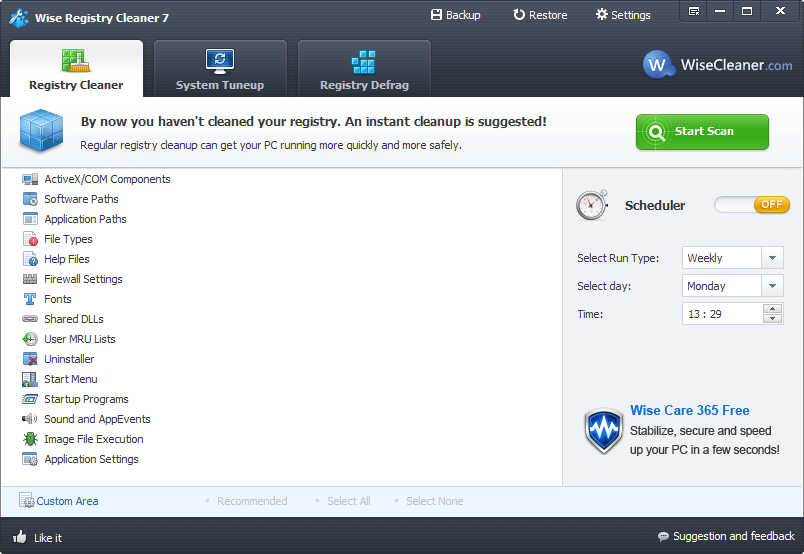

There's no program that can fix every problems in a simple click, and there probably never will. In fact, it have more chances to create them if anything. Using a Registry Cleaner won't fix any problems at all.
"Using a Registry Cleaner will fix all your errors" - False. which shows that using Registry Cleaners actually improve a system speed Also, there's no studies, tests, benchmarks, etc. There's so many entries in it that cleaning even thousands of them isn't enough to boost a system performance. The Windows Registry is a big database which contains information on everything present on the system, from the boot settings to how your programs looks when you open them. "Using a Registry Cleaner will improve a system's performance" - False. Here's a few myths about using these programs, and why they are just plainly false. It's a known fact that using these programs can easily break a Windows installation, to the point where a complete reinstallation might be needed. As long as you take basic care of your Windows computer, you don’t have to worry about your registry.Registry Cleaners are known to be harmful to the system and should not be used for any reason there is. In summary, forget about registry cleaners and get on with your life. If a registry cleaner tried to be too aggressive so it could clean up as many “errors” as possible, it could easily remove errors that were necessary for an installed program, causing problems. There are so many different registry entries that could be present from so many different software programs that the average registry cleaner put together by a less-than-reputable software company can’t possibly account for them all. We didn’t dwell on this part too much, but registry cleaners can also cause damage. 
RELATED: Do You Really Need to Regularly Reinstall Windows? If your computer is hideously slow or crashing frequently, you likely have more problems than a full registry and you’re probably better off reinstalling Windows or refreshing your PC. Even if you need to uninstall something later, a few registry entries - or even a lot of registry entries - won’t cause a slow down. Rather than run a registry cleaner, you should just be careful about what you install in the first place. We’ve already covered why PCs slow down over time and shown you how to prevent this from happening. So If a Registry Cleaner Won’t Speed Things Up, What Will?






 0 kommentar(er)
0 kommentar(er)
